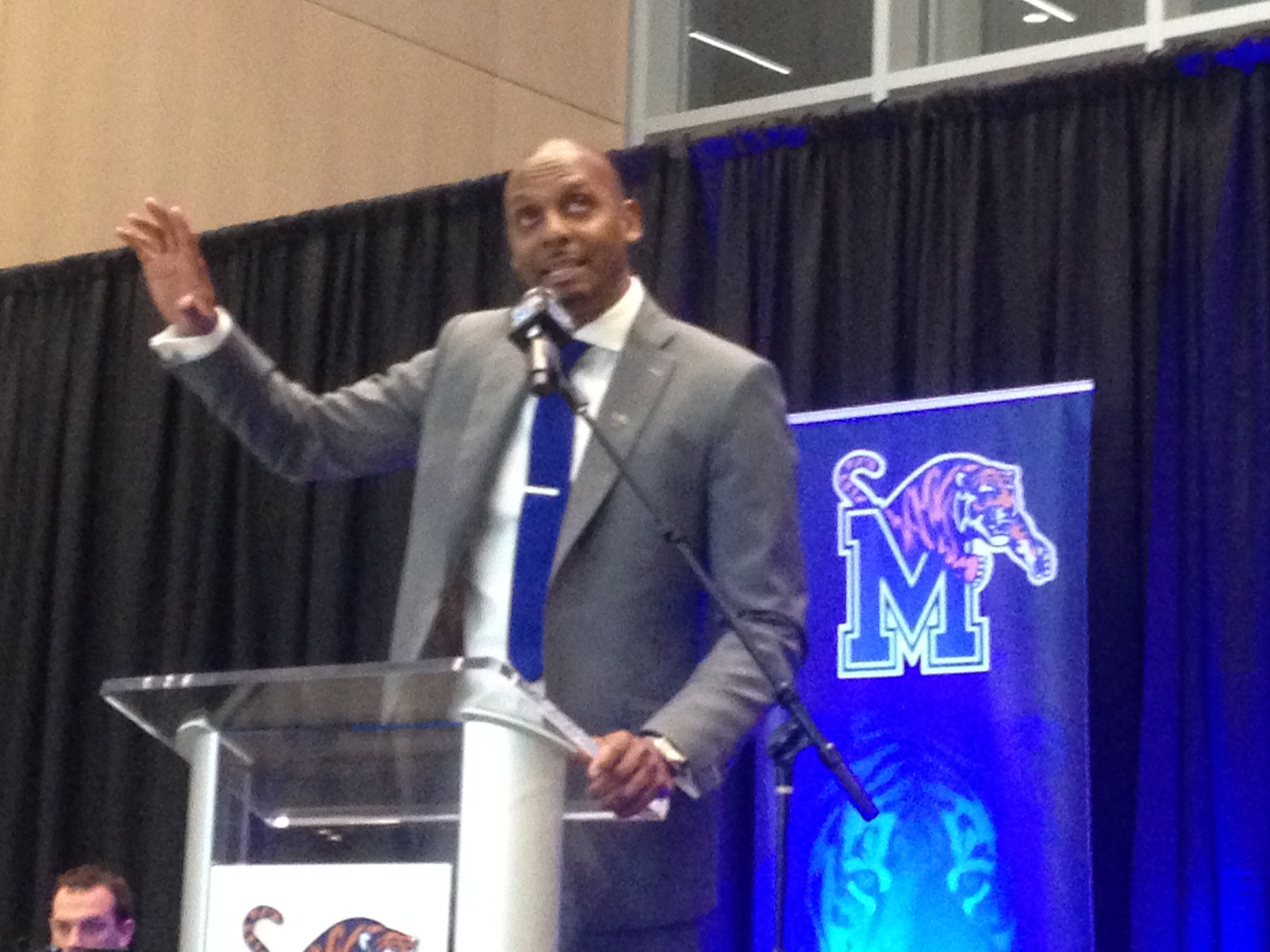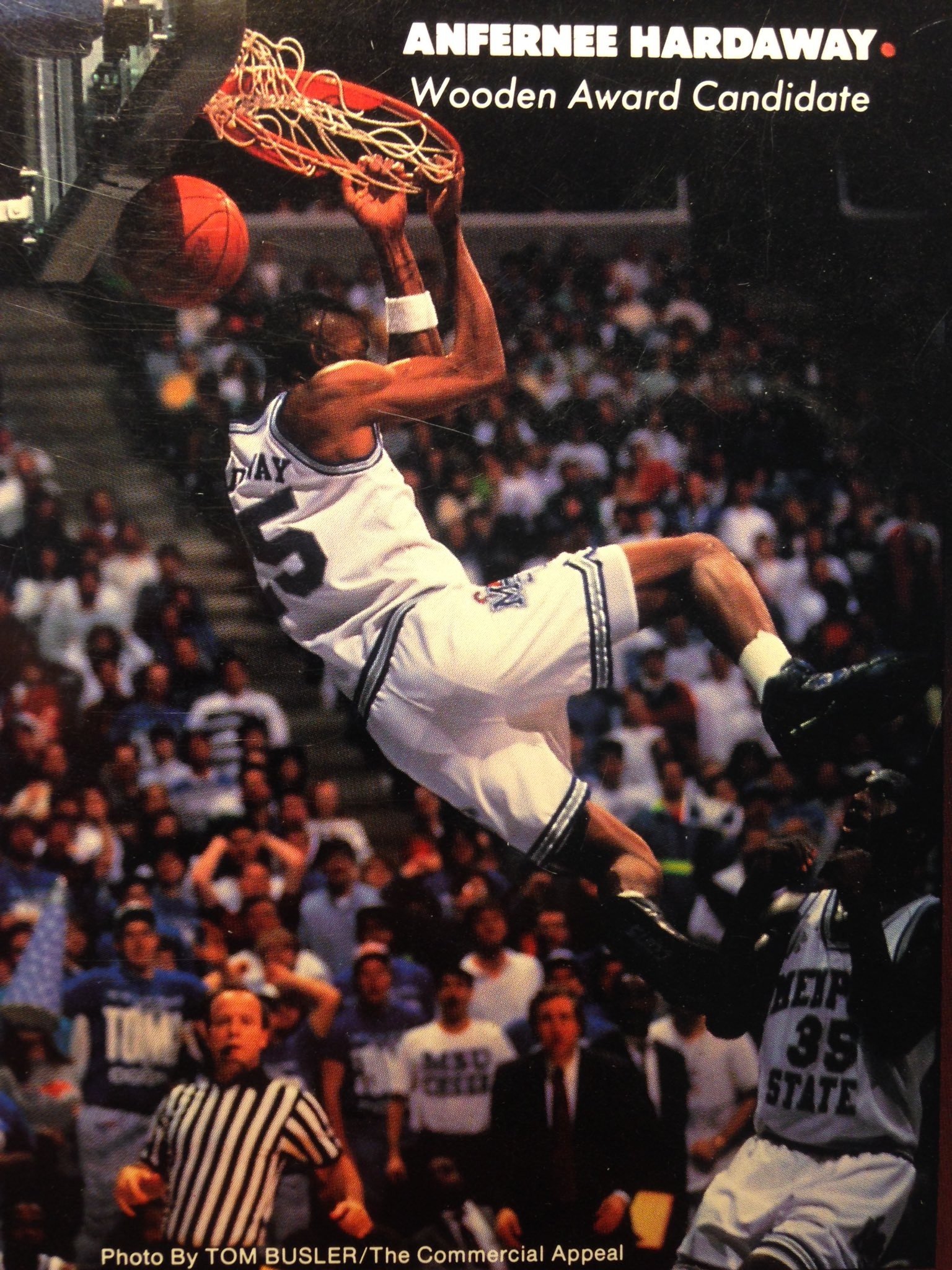If spring comes packaged with hope, the season’s arrival Tuesday brought an extra dose for anyone remotely interested in University of Memphis basketball. The worst-kept secret in town was made official at the Laurie-Walton Family Basketball Center when the U of M formally introduced Anfernee “Penny” Hardaway as the 19th head coach in the program’s long, proud history. The 46-year-old Hardaway — a native Memphian — succeeds Tubby Smith, who was dismissed last week after two years of sagging attendance at FedExForum. Smith’s Tigers went 40-26 over the two seasons and the former coach has three years and more than $9 million remaining on his contract.

This is the first college job of any kind for Hardaway, who attended what was then called Memphis State University for three years in the early Nineties and later returned to earn a bachelor’s degree in professional studies. He was a two-time Great Midwest Conference Player of the Year as a Tiger and a consensus All-America in 1993. The third pick in the 1993 NBA draft, Hardaway enjoyed a 15-year career as a pro, most notably with the Orlando Magic, for whom he was a four-time All-Star and twice named first-team All-NBA. He captured a gold Medal as a member of the 1996 U.S. Olympic team. Since retiring in 2008, Hardaway has built one of the country’s top AAU programs (Team Penny) and top high school programs, his East High Mustangs winning their third consecutive state title just last Saturday in Murfreesboro. Having first established legendary credentials at Treadwell High School, Hardaway was a 2014 inductee in the National High School Hall of Fame.
U of M Introduces Coach Hardaway
The new coach spent less than five minutes on the dais. Too many hands to shake and necks to hug in the new training facility’s packed rotunda. Highlights from Hardaway’s remarks:
We need to get back to those old-school days at the Mid-South Coliseum and the Pyramid. I miss those days. We’ve got to get them back.
I’m dedicated to the team that just finished [the 2017-18] season. I’ve told them that it was unfair — to them — that nobody really showed up [at FedExForum]. Those days are gone. We’re going to move forward with these guys and also bring some really good talent here that the city of Memphis will want to see on a nightly basis.
It’s great to see so many familiar faces from when I played, the people who have been so supportive. It’s a family reunion. I want to see the Memphis flags waving from cars, see the t-shirts and hats.
As a coach, my style . . . we’re gonna get after it. We’ll play hard-nosed basketball, running, jumping, pressing everywhere. Losing is not an option in my mind. I want to hit the ground running. People are telling me to be patient, do this or that first. But I’m not built that way. I’m not wired that way. I’ll go for it all or none at all.
Look at this facility. It speaks to the dedication of the donors and boosters. This has come a long way from the field house where I practiced. The older players — Kenny Moody, Elliot Perry — they know. We just wanted to win basketball games. But how can you not love this facility, to bring kids here to grind and work and put a product out on the court that you can be proud of.
Hardaway’s Tiger career ended this month 25 years ago. Or it seemed then. On a rainy spring Tuesday, in a facility built for champions, it seemed like Hardaway’s Tiger career has just begun.
